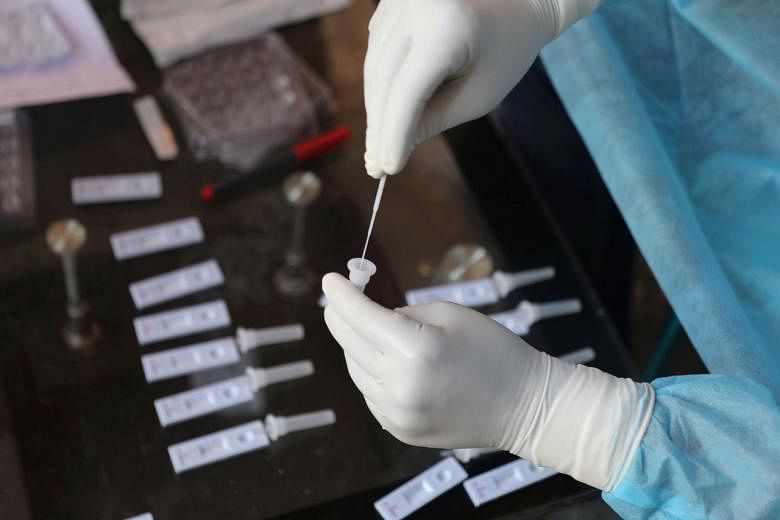KUALA LUMPUR - Malaysia's health authorities have identified a Philippine citizen in Ulu Tiram township, located just north of Johor Baru, carrying what they say is a highly contagious strain of the coronavirus known as D614G.
"The latest from the Institute of Medical Research; the D614G mutation has been detected in Covid-19 tests and cultures for three cases from the Sivagangga Cluster (close contacts to index case) and one case from the Ulu Tiram Cluster (Philippine citizen)," Malaysia's top health official, Tan Sri Dr Noor Hisham Abdullah, said in a tweet on Sunday (Aug 16).
Dr Noor Hisham, who is the Health Ministry's director-general, said the D614G mutation is 10 times more contagious than the virus that originated in Wuhan, China.
He said the D614G mutation was discovered by scientists in July and may cause current vaccine research to be inadequate in fighting the mutation.
His remarks raised concern even as Malaysia has seen some resurgence of the Covid-19 virus in recent weeks, a rebound from the tapering off of active cases off last month.
But Singapore health experts denied that the mutation should be a new cause for alarm.
Experts who spoke to The Straits Times on Monday (Aug 17) said there was no data to make the claim that it was more contagious than the original virus.
The Ulu Tiram Cluster began in Johor and has spread to Selangor state, with 10 people infected so far, Malaysia's health authorities said.
The other cluster that also included the D614G mutation was the Sivagangga Cluster that began in the northern state of Kedah when an Indian national, who holds permanent residency here, returned to Malaysia from a village in India called Sivagangga on July 13.
The Sivagangga Cluster has caused 45 infections in Kedah and two states neighbouring Kedah, Perlis and Penang.
As for the Ulu Tiram Cluster, Dr Noor Hisham said on Aug 3 that health authorities would closely monitor the infections that involved Roman Catholics in the Taman Bukit Tiram area in Ulu Tiram.
The contagious strain he said, came from two migrant workers who returned to Malaysia from the Philippines and displayed symptoms of the coronavirus a month ago, on July 15, but did not immediately seek treatment.
They were found positive for Covid-19 only two weeks later on July 31 after undergoing screening.
But Dr Noor Hisham, in a post on Facebook on Sunday, stressed that both the Ulu Tiram and Sivagangga clusters are "under control".
Still, he cautioned the public to remain disciplined by practising safety measures, such as physical distancing and wearing masks.
Malaysia on Monday (Aug 17) reported 12 new cases of the Covid-19 virus, with a cumulative total of 9,212 cases since January.
There were no new deaths recorded, and the number of deaths remain at 125.
There are 211 active cases being treated in hospital, up from 183 four days ago.












